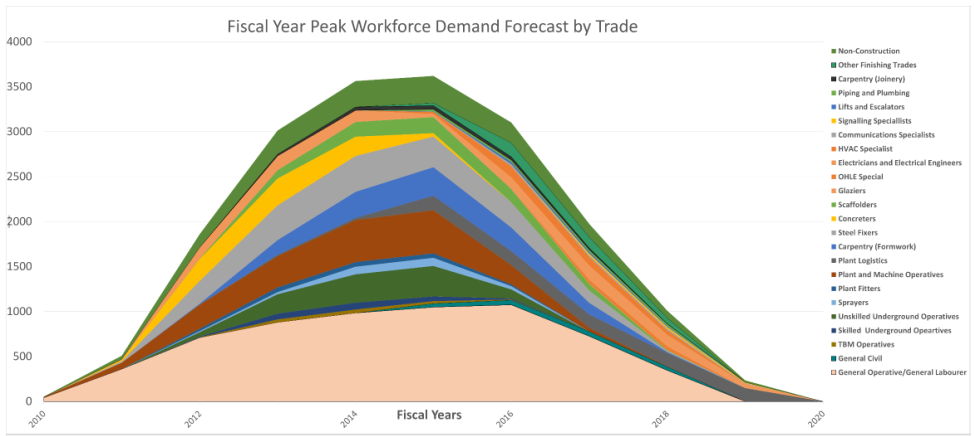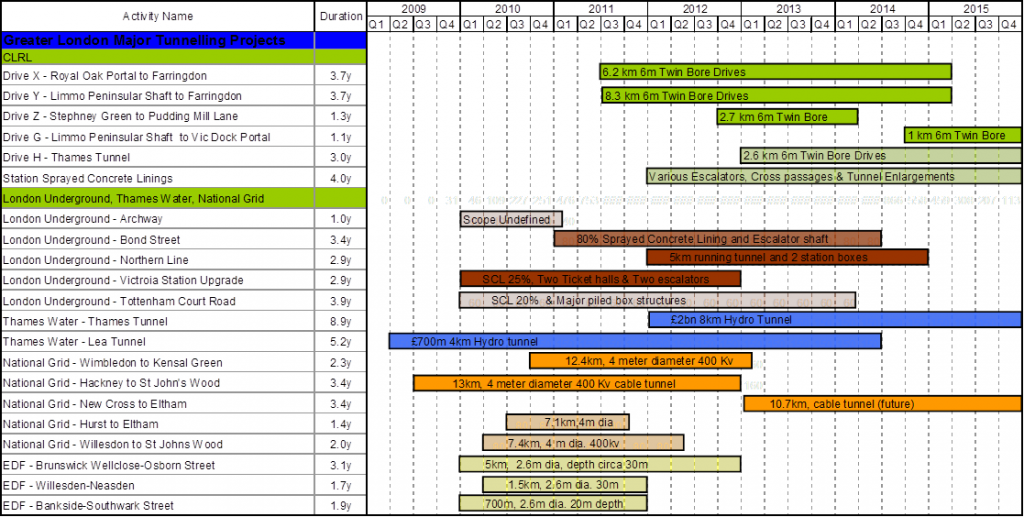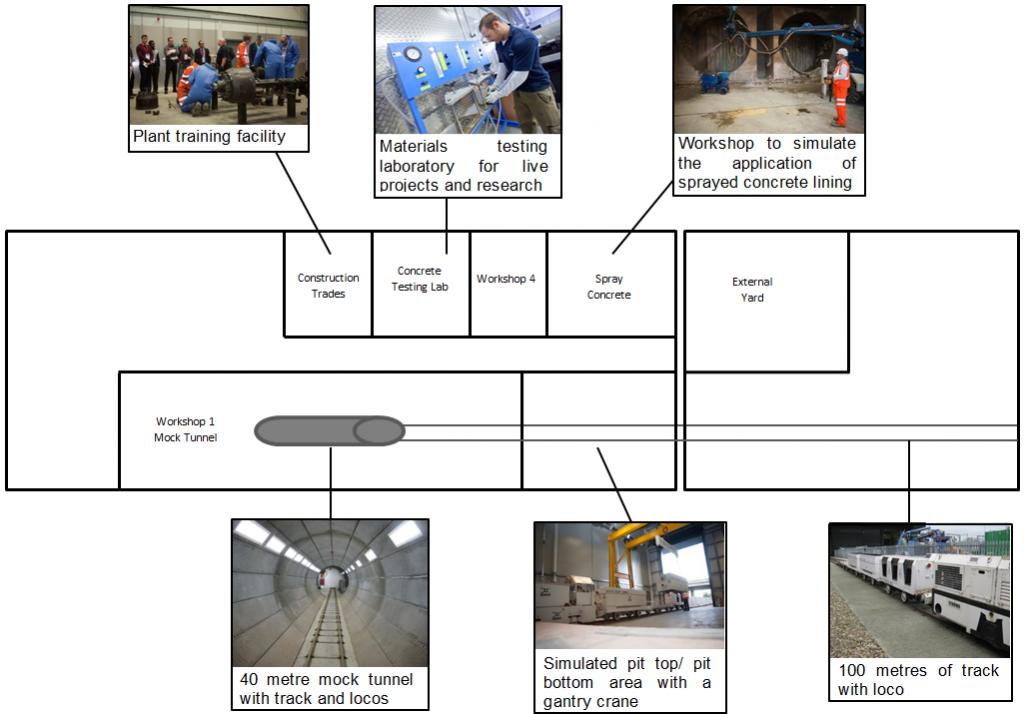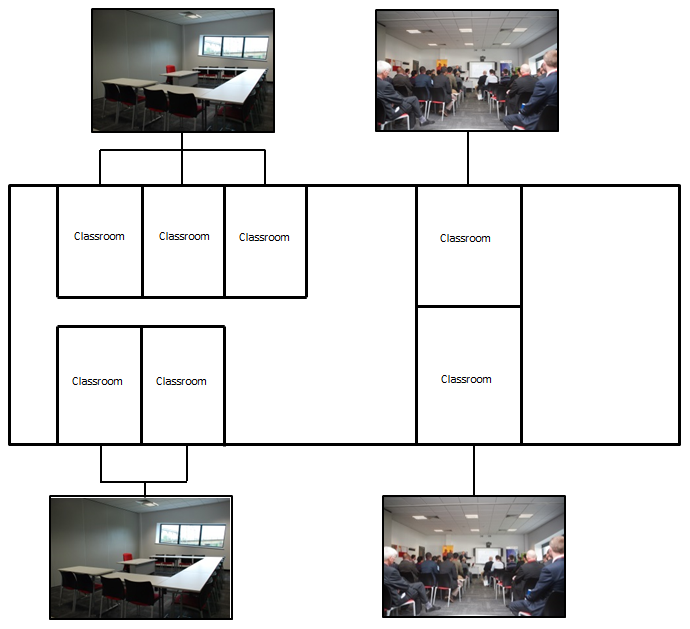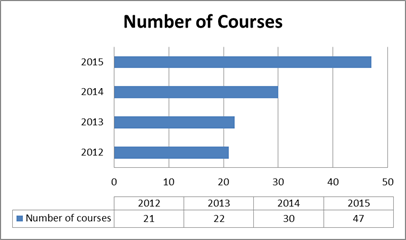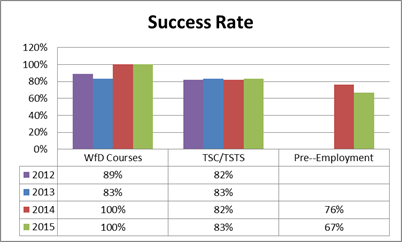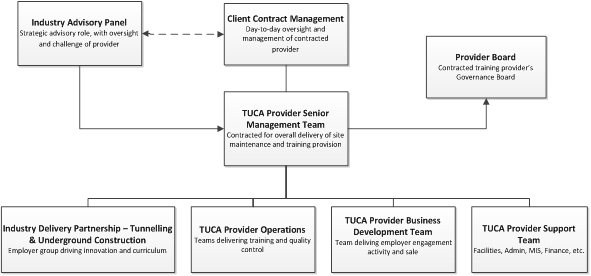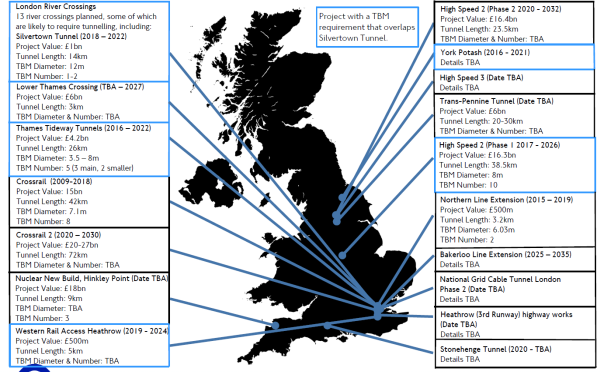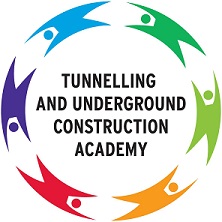
Addressing Skills Gaps Through Direct Intervention (TUCA)
Document
type: Case Study
Author:
Georgina Bigam, Nathan Pascutto
Publication
Date: 27/09/2016
-
Abstract
A major challenge of Crossrail was to mobilise the large, skilled workforce required to deliver the tunnelling phase of the project. Early on in the project it became apparent that the existing UK industry did not have enough people with the specialist experience and skills necessary to support the project. In addition, the UK did not have existing facilities available to train the workforce. To address this issue, Crossrail established the Tunnelling and Underground Construction Academy (TUCA).
This case study considers the industry skills gap analysis; the facilities required; facility concept to build; training forecasts, curriculum development and provision; training delivery model; facility governance; TUCA’s role in the national skills agenda.
The case study concludes that direct skills intervention should be supported by a robust skills gap analysis and with an effective business case. The case study also concludes that high levels of industry engagement are critical for the effective governance of the facility, ensuring that it continues to meet the ongoing skills needs of the industry.
By the end of 2018/19, it is estimated that TUCA will have generated £49m of Gross Value Added benefits against an initial investment of £12m, which amounts to a 2.3:1 return on investment.
This case study would be of interest to: the infrastructure and construction industries; skills planners and development manager of infrastructure projects; senior managers in the Further and Higher Education sectors; National Colleges; Local Enterprise Partnerships with an interest in specialist employer-led skills provision.
-
Read the full document
Introduction and Industry Context
At £14.8bn, Crossrail is Europe’s largest infrastructure project, with 55,000 people forecast to have worked on the project by its construction completion in 2018. A key risk on a project of this scale is ensuring that the right skills are available at the right time to deliver the project.
Crossrail published its Skills and Employment Strategy in July 2010 which set out how Crossrail would address the skills and employment challenges and opportunities on the project whilst delivering on four key aims: maintaining safety; inspiring future talent; supporting local labour; and revitalising the skills base.
Crossrail commissioned a labour forecasting model developed in 2011 which identified a skills shortage, particularly in tunnelling and underground construction generally. As a large scale infrastructure project, Crossrail had considerable leverage to effect wide-reaching change and address the skills gaps within the tunnelling and underground construction industry, creating a lasting skills legacy for future projects. Crossrail’s approach to addressing this skills gap was three-fold:
- To set up an Employment and Skills Brokerage designed to support local labour and to help ensure that the right skills are available at the right place at the right time
- To develop a comprehensive apprenticeship programme – to train 400 apprentices on the programme by 2018
- To establish a Tunnelling and Underground Construction Academy (TUCA) – training 3,500 people by 2018 whilst also leaving a legacy for use by the wider industry.
This paper focuses on the role of TUCA in addressing the skills gap, how it was set up and managed and lessons learned for future programmes to consider when establishing their own skills academies.
Tunnelling and Underground Construction Academy (TUCA) Aims
The establishment of the Tunnelling and Underground Construction Academy (TUCA) at Ilford was central to Crossrail’s delivery plans, the delivery of Crossrail’s Skills and Employment Strategy and Crossrail’s skills and employment legacy to the industry and greater London.
Crossrail aimed to ensure that the tunnelling industry gained the maximum benefit from the establishment of TUCA and the qualifications and training delivered. Crossrail did this by working in partnership with the Skills Funding Agency (SFA), the Construction Industry Training Board (CITB), Tunnel Skills, the British Tunnelling Society (BTS) and key tunnelling clients.
By building and establishing a specialist facility, Crossrail promoted training across the industry, contributing to both the development of new qualifications and the improvement of health and safety standards across the industry.
Skills and Labour Forecasting
Crossrail commissioned a comprehensive Skills and Labour forecasting report in order to better understand skills and labour needs of the Crossrail project. The report mapped both the supply and demand predicted over the life of the Crossrail project.
At a national level, the report outlined that there was a significant amount of works with over 200 projects and an associated value of over £110 million taking place over a similar period as Crossrail. This reflected a predicted growth of 8% on 2007 levels within the infrastructure sector and was likely to cause skills shortages and gaps which could lead to inflationary pressures.
Crossrail Demand
The first step was to establish the demand, ie, the skills required to deliver the Crossrail project across all trades and skills groups. The demand for each was established by consulting with Crossrail contractors, industry bodies such as the Construction Industry Training Board, and taking into account data from the Office for National Statistics and the modelling from previous major project experience (e.g. the Olympic Delivery Authority). The modelling showed that there was considerable demand within the project across all trades and skills groups, as outlined in the table 1 and Figure 1:
Trade Peak Peak Date Labour 476 February 2014 Plant Operative 368 February 2014 Civil Operative 391 October 2011 Electrical 67 March 2015 External Envelope 381 March 2015 Wood Trades 385 April 2014 Structural Trades 640 April 2014 Finishing Trades 171 March 2017 Specialist Building 150 March 2017 Building / Mechanical and Electrical 298 December 2015 Non-Construction Operative 206 February 2015 Tunnel Operative 473 February 2014 Spray Concrete Lining Operative 93 November 2014 Table 1 – Peak Demand by Trade
In particular, the report showed that there would be a significant requirement for tunnelling and underground construction operatives and spray concrete lining operatives, with over 3,500 people (566 at the peak of construction) forecast to deliver these skills over the life of the Crossrail project.
Figure 1 – Illustrative Skills and Labour Forecast as of 2010
Industry Demand
The Skills and Labour forecasting also showed that there was an unprecedented level of tunnelling work forecast across the UK between 2010 to 2020 (the period of the Crossrail project), with a concentration in the south east of England.
This included works for Crossrail, London Underground, Thames Water (Tideway), National Grid and EDF as shown in Figure 2.Figure 2 – Projects requiring tunnelling (2009)
Supply
An analysis of Greater London’s labour supply was undertaken in order to gauge readiness to meet Crossrail peak demand for specific trades. To perform this supply side analysis, analytics were performed on data sets provided by the Skills Funding Agency (SFA) that contained information regarding certification achievement through further education and associated funding data.
The Annual Recruitment Requirements (ARR), as forecast by the Construction Industry Training Board was included in the analysis to show the additional labour force required in the Greater London area.
This approach worked well for trade and skills groups where there was robust data. However, it proved difficult for emerging trades with no formal qualifications, such as tunnelling and underground construction and spray concrete lining, as there was limited SFA data available.
The best reference point for Crossrail on the available workforce was from ConstructionSkills, who in 2005, estimated that there were only 3,690 skilled tunnellers, pilers and drillers in the UK. Of this group, only 500 were employed on tunnelling projects within the UK in 2009, with the remainder moving into other industries or to tunnelling projects in other parts of the world.
Supply v Demand Implications
The skills and labour forecasting report concludes that two key issues would affect Crossrail:
- Insufficient number of tunnellers to complete the Crossrail project works. The existing tunnelling workforce was small as a result of cyclical peaks and troughs in tunnelling work in the past. This meant that Crossrail did not have enough tunnellers to meet the project need of at least 3,500 tunnel operatives.
- Spray concrete lining was considered a risk area. Although only a small workforce was required to deliver it (around 100 at its peak), the predicted shortages would lead to programme delay, quality issues and the risk of health and safety incidents.
The skills and labour forecasting report also concluded that analysis of the industry and project pipelines showed that there would be a regional and national demand for qualified and experienced tunnel operatives which would exceed any current supply mechanisms. This meant that there was a strong demand for tunnelling and underground construction skills to support Crossrail as well as future projects.
The Need for a Specialist Tunnelling Academy
Three major factors further compounded the skills shortage for Crossrail and the wider tunnelling and infrastructure construction industry.
Firstly, there were no existing tunnelling and underground construction qualifications. Previously, the majority of training had taken place on site and was informal and non accredited. Whilst skills and expertise were generally being passed from one generation of workers to the next, with no formal qualification structure, the quality of this varied and was not easily transferable between different jobs.
Secondly, with the tunnelling industry having a very small resource pool, this compounds the challenges of an ageing workforce, which is also being experienced by the construction and engineering sectors where, according to the CITB, around 19% of works are set to retire within the next five to 10 years.
Thirdly, there were no purpose-built training facilities in the UK. The only other similar provision in Europe at that time was the Hagerbach Test Gallery in Switzerland. This facility, however, focused on hard rock tunnelling, which would not be encountered on the Crossrail project.
These three factors, combined with the outcome of the forecasting exercise made a compelling case for Crossrail to establish a purpose built tunnelling and underground construction academy.
Building TUCA
In establishing a specialist Tunnelling and Underground Construction Academy, Crossrail had two clear objectives:
- Ensure the delivery of enough trained staff to deliver the tunnelling aspects of the Crossrail project
- Ensure a long term future as a provider of tunnelling training and qualifications, providing a legacy benefit to the industry
With no blueprint for building a tunnelling and underground construction academy, the design for TUCA had to begin from scratch. Crossrail established a project management team consisting of specialist design consultants, experts in the education sector, industry experts, and industry employers. The team oversaw the development of TUCA; the design and build, and utilised the support and guidance offered through partnerships with the industry and TUCA sponsors.
TUCA’s construction was funded by Crossrail Limited with a contribution from the Skills Funding Agency.
The diagrams below show the teaching areas of TUCA as of completion in September 2011:
Figure 3 – TUCA Ground floor
Figure 4 – TUCA First Floor
Delivery Model
Crossrail undertook an options appraisal to determine the best delivery model for TUCA. Crossrail considered two options for training delivery:
- Option 1: Appointment of a training provider to deliver training on behalf of Crossrail
- Option 2: Crossrail to deliver training directly
In determining what model should be implemented for delivery, Crossrail wanted to make sure that it could deliver the required skills training for Crossrail and future underground and construction projects within the UK. The key considerations for Crossrail were:
- Ability to draw down Skills Funding Agency funding for pre-employment training, the provision of which was an undertaking of the Crossrail Act 2008.
- The capacity and capability to quickly mobilise for training delivery to support the Crossrail programme.
- The longevity of TUCA beyond the Crossrail project.
The options appraisal identified that outsourcing the delivery of training to a third party training provider was the preferred approach to training delivery for the following reasons:
- Crossrail was not a SFA training provider and was unable to access SFA funding to deliver pre-employment training.
- Mobilising Crossrail to deliver training would take much longer, potentially putting delivery of the Crossrailprogramme at risk than appointing a specialist third party training provider who had established delivery methods and whose training in capacity and capability was recognised across the industry.
TUCA was established as an industry-led facility working with Crossrail contractors, industry suppliers and other major infrastructure projects in London such as Thames Tideway. This approach had clear benefits. It ensured that Crossrail was able to leave a legacy to the industry beyond the Crossrail project and provided the training provider with day-to-day autonomy for training delivery. It also provided an opportunity to provide the industry with a specialist learning centre to offer formal qualifications including Apprenticeships. To ensure that the industry was able to play its part in shaping the skills and training provision at TUCA, TUCA was overseen by an Industry Advisory Panel and an Industry Development Panel. Further information on the IAP and IDP is in the Governance section below.
It was important to Crossrail that the training provider appointed had the ability to deliver the training that Crossrail and the wider industry required. It was also important that they could support the local labour (pre-employment) training agenda, to provide local unemployed people with training and employment opportunities on Crossrail and other major projects across London and the South East, driving the growth of the tunnelling and underground construction workforce. As this was a new venture for Crossrail, for the industry and for skills providers a bespoke approach was required to meet the unique needs of TUCA. Crossrail found that there was a lack of experience in the market and therefore decided to open negotiations with Construction Industry Training Board (CITB) to take over the running of TUCA, with support from Crossrail.
Crossrail appointed the CITB in September 2011. The CITB had a strong reputation with a proven record of delivering high-quality and industry relevant training within the construction sector. This experience, as well as existing relationships with employers, educators, the industry and suppliers, meant that CITB provided a good fit as a partner.
As experienced training providers, CITB were able to mobilise immediately and commence delivery of their pre-employment training programme, targeting those learners who were seeking to gain employment within the industry.
Planning and Developing the Curriculum
It was expected that the industry would use TUCA to train and develop workers for a number of planned tunnelling projects, many of which were concentrated in and around the South East of the UK. TUCA’s curriculum however was developed primarily to address the key skills shortages in the tunnelling and underground construction industry, which related to the needs of the Crossrail programme.
Crossrail’s Skills and Employment team drove the design and development of new, sector-specific qualifications, in conjunction with CITB, TunnelSkills, sponsors and industry. Crossrail considered that it was essential to develop the curriculum framework in partnership with these industry experts, as their contribution to the finished framework was critical to ensure the industry relevance of the training programmes offered. This also dictated the final design of TUCA and the balance of workshops and classroom space.
The curriculum needed to cover three key areas:- workforce development (those already employed);
- pre-employment (unemployed people wanting to work in the industry); and
- apprenticeships.
It included the following courses:
- the mandated Tunnel Safety Card (now Tunnel Safety Training Scheme),
- sprayed concrete lining courses,
- the Crossrail Frontline Leadership Programme
- a range of general health and safety courses.
Delivery
Between 2011 and 2016, over 16,000 units of training have been undertaken at TUCA. Of the 16,000 units delivered, the vast majority – nearly 80% – completed a workforce development course.
In September 2011, CITB were awarded a pre-employment contract with the Skills Funding Agency and delivered several pre-employment programmes to over 4,000 unemployed Londoners. In partnership with the Crossrail Jobs Brokerage and employers, these pre-employment programmes aimed to prepare people for work on the Crossrail project. This, along with the apprenticeship offering, was a vital part of TUCA’s offering, as without it, the pipeline of talent — the next generation of tunnellers — would not be developed.
Industry Support
TUCA enjoyed strong industry support from across the tunnelling and underground construction sectors. TUCA negotiated sponsorship agreements with equipment suppliers, which supported learner training and provided expertise to ‘train the trainer’. The equipment which was sponsored was generally specialised technical construction kit which would be encountered on a tunnelling and underground construction worksite.
There were clear benefits from putting in place the equipment sponsorship agreements:
- Learners were trained with and could familiarise themselves on state-of-the-art equipment which would be used on site, making the training practical and applicable to the workplace
- TUCA was able to access state-of-the-art equipment without the upfront capital costs.
- Sponsors were able to support a world class training facility and benefit from the good will and exposure that would come with supporting TUCA.
Contract Management and Performance
CITB delivery at TUCA commenced in September 2011 and Crossrail were the direct contract managers. Crossrail played a key role in driving up the performance at TUCA, through performance management of CITB, support with bid writing for government skills programmes, introducing employers to TUCA, and hosting visits . This was lead by day–to-day Crossrail team based at TUCA, with support from the Crossrail skills and employment team.
The contract was managed through quarterly contract review meetings with key members from both Crossrail and CITB. The purpose of the meetings was to support and challenge performance – in equal measure – to ensure that TUCA continued to meet the needs of employers. Crossrail ensured that the members attending the contract review meetings represented training delivery, facilities management, health and safety, finance and business development.
The contract between Crossrail and the CITB established clear KPIs by which CITBs performance was assessed. The KPIs also provided intervention points for remedial actions if performance fell short of the expected standard. This provided an effective mechanism for measuring performance and driving improvements.One key example of this was the KPI for pre-employment learners gaining employment. This required an integrated approach between Crossrail, CITB, SFA and employers. This was a key issue debated at contract review meetings where many ideas and issues were considered. This included bringing in job brokerage representatives when necessary and organising dedicated task lists.
In total, there were around 50 KPIs that covered training delivery, business development, catering and facilities managements which were used to assess CITBs performance. Detailed KPIs are available at Appendix 1.
Further information regarding the outcomes is in the TUCA Training Performance section, below
TUCA Training Performance
TUCA commenced training in September 2011. Since this time, TUCA has achieved the following key training outcomes:
- 16,020 learners trained against a target of 8,000. This comprised:
- 2,682 pre-employment learners
- 13,338 enrolments onto workforce development courses
Figure 5 – Total Enrolments
- New course developments and associated accreditation, including Tunnel Safety Training Scheme, Frontline Leadership Programme, Sprayed Concrete Lining programmes and Gantry Crane training.
Figure 6 – Number of Courses
- The TSTS and Tunnel Entry and other health and safety in tunnelling programmes were by far the most popular workforce development courses delivered, accounting for over 7,000 enrolments.
- Pre-employment programmes received referrals from Jobcentre Plus and although there was some drop out during this process, this was in line with, or better than, that compared with similar programmes.
- 20% of pre-employment learners progressed into work
Figure 7 – Success Rate
TUCA’s Role in the National Skills Agenda
Since its establishment in 2011, TUCA has played a significant role in the UK construction and infrastructure skills agenda.
Being at the forefront of training development and delivery in the tunnelling and underground construction sector, TUCA has been recognised as being a sector leader. TUCA was recognised as a centre of excellence in the 2016 Transport Infrastructure Skills Strategy, and is considered critical to support the delivery of 30,000 transport infrastructure apprentices by 2020.
TUCA has also delivered several SFA funded programmes, including the Employer Ownership of Skills (EOS) pilot. The EOS pilot led to the development of new qualifications, most notably, the two apprenticeship routes, one of which was a ‘trailblazer’ apprenticeship. The project also led to the formation of the Industry Development Partnership (IDP), which along with the Industry Advisory Panel (IAP) (explained in the next section), has been crucial to engaging employers’ views, expertise and support in the ongoing development of TUCA.
Overall, the project was therefore a success for TUCA; however, as the administrative systems were not explicitly outlined at the beginning, this led to challenges around these aspects of the programme. The UKCES evaluation of the EOS pilot found that other projects had the same experience.
Crossrail commissioned an independent report to ascertain the value added by TUCA to the skills agenda. Researchers SQW asserted that TUCA had significant investment from Crossrail, and as such would take longer to provide a positive Return on Investment (ROI) than other skills initiatives which were considered in the SQW report, such as the Crossrail Job Brokerage and Young Crossrail which had negligible investment costs. SQW calculated that by the end of 2018/19, TUCA will have generated £49m of Gross Value Added benefits against an initial investment of £12m, which amounts to a 2.3:1 return on investment.
TUCA Governance
The governance structure of TUCA placed employers at the heart of the Academy. It brought together experts and the training provider to develop and deliver employer-led skills and training provision.
Figure 8 – TUCA Governance Structure
Industry Advisory Panel
The Industry Advisory Panel (IAP) was established in 2011 to provide a formal forum for advice from key stakeholders on the strategic direction of TUCA. The remit of the IAP were outlined in clear terms of reference:
The Panel members will advise, assist and make recommendations on:
- The strategic direction of TUCA and its policies
- Demand for training, now and into the future
- Funding, sponsorship and other income opportunities for TUCA
- New technology and new training methods as they develop
- Lessons learnt from other similar institutions or educational facilities
- Any other specific issues as requested by TUCA and/or the Skills Provider.
Membership of the panel includes representatives from employers in the industry, TunnelSkills, the British Tunnelling Society, Cambridge University and the CITB. The Panel meets quarterly and has provided valuable, senior-level support and commitment to the development of TUCA. This Panel has also provided a forum for employers to engage with the Academy at all levels across their organisations and ensured that TUCA was informed by a wide range of industry opinion.
The main benefit of the IAP was in elevating the tunnelling skills debate to the same level as other industrial partnerships; this focus ensured that skills needs are now positioned as a key to the success of tunnelling projects.
Crossrail chaired the IAP from 2011 to 2016, when the role of Chair was handed over to Tideway as the next major project requiring tunnelling and underground construction expertise.Industry Development Partnership
The Industry Development Partnership (IDP) was established in 2014 to provide operational support to TUCA that complemented the strategic support from the IAP. The overall scope and objective of the Industry Delivery Panel is to provide a steering group for the delivery of the Employer Ownership of Skills Tunnelling Talent project and utilise advice from key stakeholders to inform the strategic direction of the project.
The Terms of Reference of the IDP outlines the Panel responsibilities as:
The Panel will:
- act as a conduit for co-ordination and effective working between the partner representatives on tunnelling and underground construction within the UK and beyond;
- support the development of the Tunnelling and Underground Construction Academy (TUCA) towards making it the first choice for all relevant company training- link and liaise with the TUCA Industry Advisory Panel (IAP), receiving reports on TUCA and sectoral strategic developments
- receive reports and updates from project working groups / workstreams
- provide a mechanism for best practice, good practice and information exchange, and as an information exchange for members to keep abreast of current opportunities for work and develop joint proposals
Membership of the IDP included the same organisations represented at the IAP, with the addition of some small to medium sized businesses involved in the tunnelling and underground construction industry.
The IDP oversaw the development of new qualifications, advised on training needs and developed new apprenticeship frameworks for the underground construction sectors.
The Training Provider
Within the governance structure, the role of the training provider was to facilitate and deliver the day-to-day training at TUCA. The training provider’s operations were overseen by the training provider’s senior management team, who reported into their own governance board:
- Operations — teams delivering training and undertaking quality control of course/training provision
- Business Development — delivering employer engagement activity, determining areas for new training provision and the sale of training deliverables
- Support — core support services to enable the effective delivery of training provision. This includes facilities, administration and finance functions
Crossrail Contract Management
Crossrail was responsible for the day-to-day contract management of the training provider. Further information is contained in the Contract Performance Management section, above.
External Profile
As a purpose-built, specialist training facility TUCA has a high profile both within the UK and abroad. TUCA has been visited by organisations that are interested in establishing a similar facility to support their infrastructure projects.
Visitors to TUCA include:
- Overseas projects, including Copenhagen metro, Delhi metro, China rail, Makkah Metro
- MPs and other dignitaries, including David Cameron, Baroness Kramer, HRH Prince Andrew
TUCA Future Role in the UK Tunnelling and Underground Construction Industry
Analysis completed by TfL in 2016 showed that there was potentially up to 17 separate infrastructure projects that would require tunnelling and underground construction skill sets from 2018 through to 2036, including, including the Tideway Tunnel and London Underground works.
Figure 6 – Future Tunnelling Projects
Lessons Learned
- Skills demand and workforce supply forecasts can be difficult to ascertain, particularly in new and emerging trades. In this instance, it is important to work across the sector to establish a realistic demand and workforce supply profile to support the business case for skill and training interventions.
- Involving employers from the outset and at all levels, from the Industry Advisory Panel membership to designing and planning training, ensured that expertise was readily available and that the end products were fit-for-purpose.
- Ensuring that trainers had credibility among employers was crucial to the success of the Academy, as employers told us they wanted access to quality training provision which has a high Ofsted rating.
- Skills targets, contractually mandated training and training funded by the client increased uptake of these programmes and ensured that employers were engaged in discussions about skills.
- Pre-employment training should lead to jobs or apprenticeships in the industry. Links with the job brokerage service were essential in ensuring employers’ needs were met and the learners had a realistic chance of work. It was important to balance the needs of recreating realistic site operation whilst providing a safe training environment. The simulated accidents, hazards and work environments were carefully considered to create a realistic tunnelling and underground construction training environment, ensuring that delegates were ‘site ready’
Recommendations for Future Projects
- Work with a broad range of other projects, employers, equipment suppliers and industry experts to ensure that each product is fit-for-purpose, safe and future-proof.
- Skills forecasting should inform strategy and be agile enough to reflect changing employer needs and labour market conditions; it should be kept up-to-date and used to inform decision-making.
- Ensure that health and safety practices, other legislative changes and developments in construction techniques are monitored, as they are sources for potential new training opportunities.
- Consider the process for training trainers and allow plenty of time for their development, including site experience as necessary.
- Ensure the curriculum development team is tied into the business development team, to ensure responsiveness to employers’ needs.
Conclusion
Since its establishment in 2011, TUCA has delivered over 16,000 training outputs supporting the delivery of the Crossrail project and providing a growing workforce for the tunnelling and underground construction sector. This paper outlined the reasons for TUCA’s establishment and the process that Crossrail went through to demonstrate that there was a need for targeted skill intervention for tunnelling and underground construction.
The skills and labour forecasting exercise made it clear that it is difficult for a project to determine workforce supply data for new and emerging skills. In the TUCA’s example, this highlighted the importance of working across the sector to gain a greater understanding of the project demand and the available workforce.
Crossrail’s establishment of TUCA highlighted the effectiveness of working in partnership with industry. As an industry-led centre of excellence, Crossrail has been able to bring together employers, suppliers, educators and the supply chain to develop training which is industry relevant and focused. It has also allowed sponsorship arrangements to be agreed with suppliers so that training delegates have access to state-of-the art equipment. Key to TUCA’s industry-led model has been the establishment of the Industry Advisory Panel and the Industry Development Panel. Future projects considering establishing a centre of excellence are recommended to follow this collaborative and industry-led approach.
It has been calculated that by the end of the Crossrail project in 2018/19, TUCA will have generate £49 million of Gross Value added against an initial investment of £12 million, representing a 2.3:1 return on investment.
While the establishment of TUCA has been critical in the delivery of tunnelling on the Crossrail project, TUCA will continue to make a significant contribution to future major project across the UK, including the 17 major infrastructure projects planned between 2018 and 2036.
References
[1] The Annual recruitment requirements (ARR), as calculated by CITB and Experian, is a gross requirement that takes into account workforce flows into and out of construction due to factors such as movements between industries, migration, sickness and retirement. However, due to the inconsistency and coverage of supply data, these flows do not include movements into the industry from training.
[2] CITB, UK Construction Industry facing skills ‘time bomb’, http://www.citb.co.uk/news-events/uk-construction-skills-time-bomb/, accessed 15 August 2016
-
Document Links
-
Authors
Georgina Bigam - Crossrail Ltd
Georgina has been Strategy and Commercial Manager for TUCA since November 2013, with responsibility for overseeing the training provision and business development at TUCA. Prior to that, she was Skills and Training manager for Crossrail, with responsibility for the skills element of the Responsible Procurement agenda and curriculum development for the project.
Nathan Pascutto
Nathan Pascutto was the Business and Policy Manager for Talent & Resources at Crossrail from 2014 until 2018. Prior to joining the Crossrail project, Nathan held senior policy positions across both the Australian and UK Governments, including the Department of Finance, and the Treasury in Australia; and the Department for Education; and the Department for Energy and Climate Change in the UK.
Nathan has a Bachelor of Business and a Bachelor of Laws from Southern Cross University, Australia, and a Graduate Diploma of Legal Practice from the Australian National University.
-
Peer Reviewers
Scott Young, Head of Skills and Employment, Tideway
